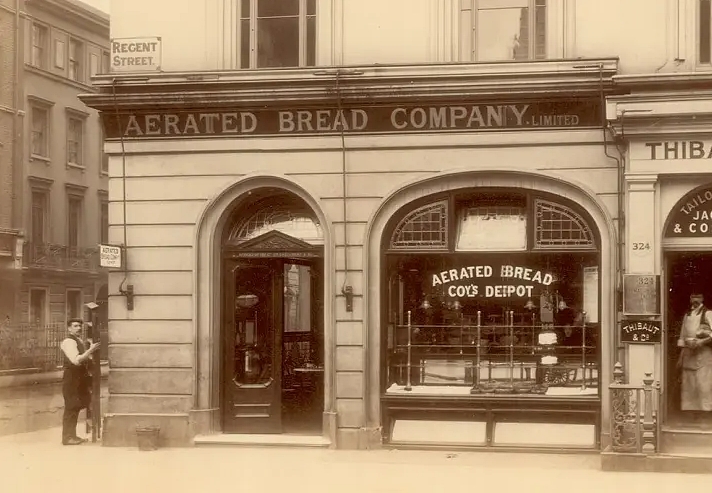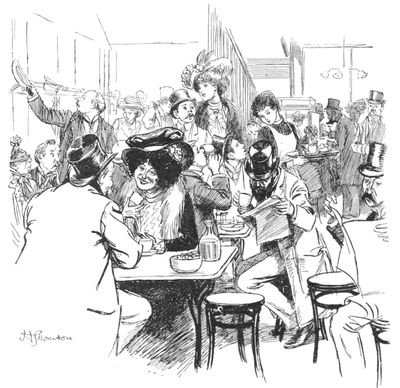

|
 A form of bread aerated directly with carbon dioxide gas, instead of allowing the gas to be produced by yeast.  From: Westminster City Archives Image via: theabcsoftea.com The later part of the 19th Century seems to have held, in some quarters, a certain distrust of yeast, with its associations to the 'demon drink' and newly-discovered sickness microbes. This prompted the development of 'Non-Brewed Condiment' as an alternative to vinegar, and may have been the inspiration for Aerated Bread. The process was developed by Dr. John Dauglish who established the The Aerated Bread Company Ltd in 1862 in Islington in London. It grew to have 150 branch shops and 250 tea rooms. The 'ABC' became an important feature of Victorian and early 20th Century city life, it is frequently mentioned in literature and credited with providing the convenient neutral ground on which the Suffragettes, among others, were able to flourish. The firm was taken over by Allied Bakeries Ltd in 1955 which became in turn a subsidiary of Associated British Foods Ltd. It ceased trading in the early 1980's.  An Aerated Bread Shop, from 'Highways and Byways in London', 1920 'On the Healthy Manufacture of Bread: A Memoir on the System of Dr. Dauglish' (1884)  https://archive.org/details/onhealthymanufa00dauggoog https://archive.org/details/onhealthymanufa00dauggoog
 |
|
MORE FROM Foods of England... Cookbooks ● Diary ● Index ● Magic Menu ● Random ● Really English? ● Timeline ● Donate ● English Service ● Food Map of England ● Lost Foods ● Accompaniments ● Biscuits ● Breads ● Cakes and Scones ● Cheeses ● Classic Meals ● Curry Dishes ● Dairy ● Drinks ● Egg Dishes ● Fish ● Fruit ● Fruits & Vegetables ● Game & Offal ● Meat & Meat Dishes ● Pastries and Pies ● Pot Meals ● Poultry ● Preserves & Jams ● Puddings & Sweets ● Sauces and Spicery ● Sausages ● Scones ● Soups ● Sweets and Toffee ● About ... ● Bookshop ● Email: [email protected] COPYRIGHT and ALL RIGHTS RESERVED: © Glyn Hughes 2022 BUILT WITH WHIMBERRY |